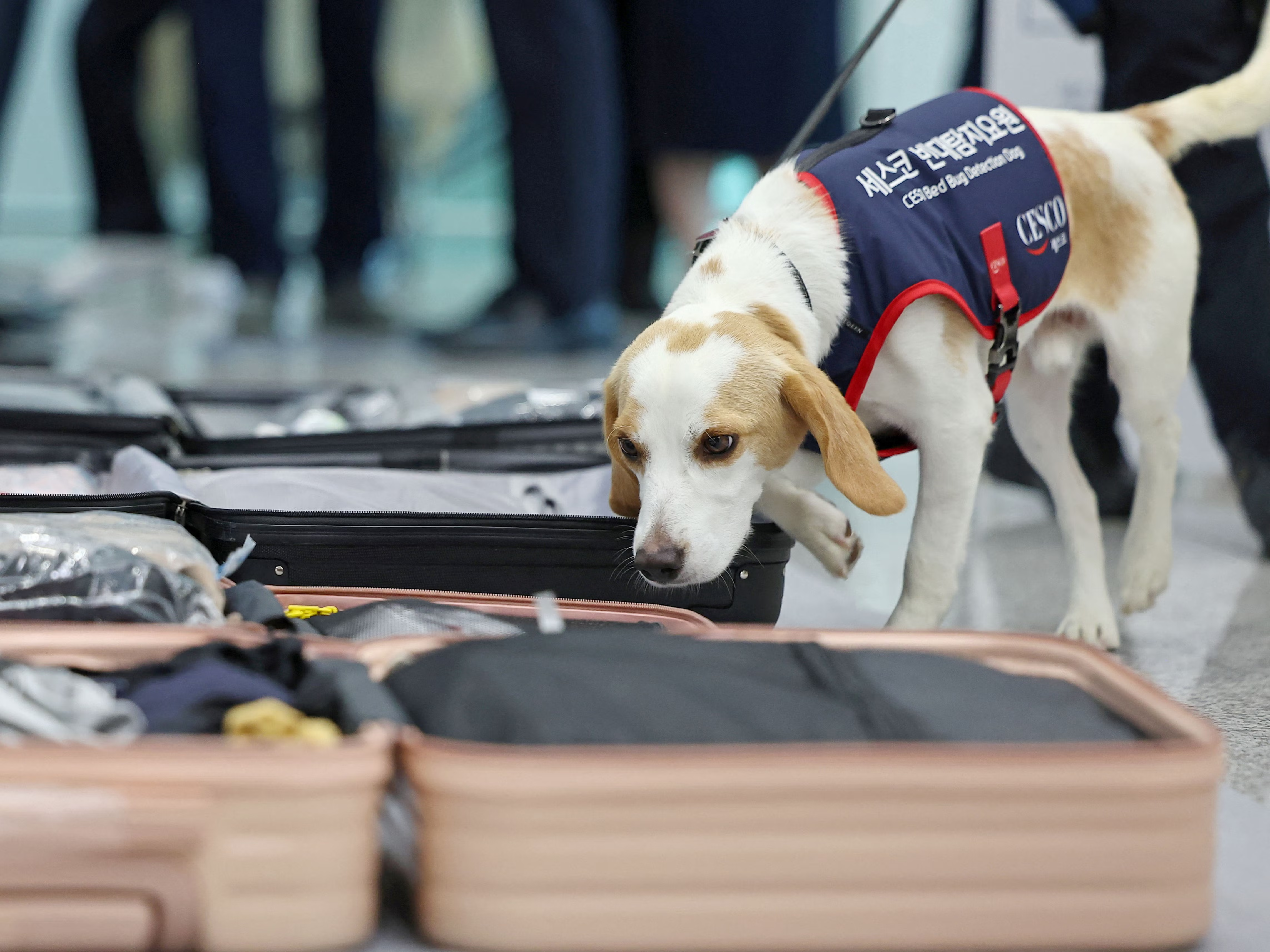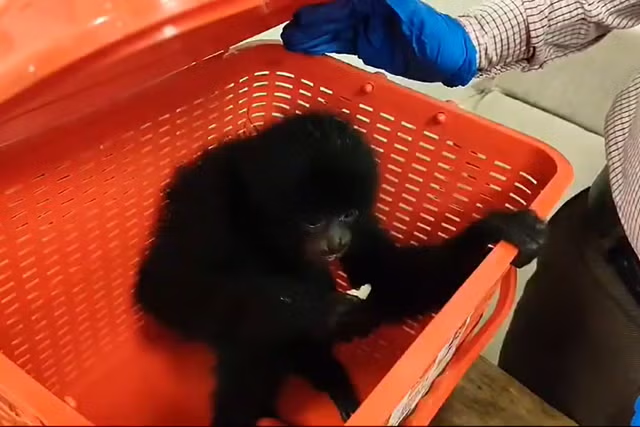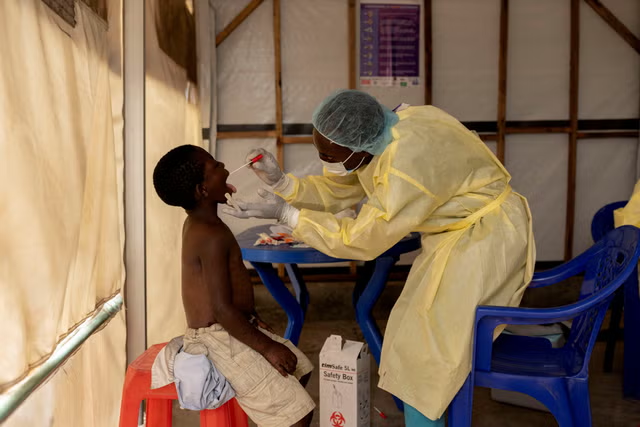Support truly
independent journalism
Support Now
Our mission is to deliver unbiased, fact-based reporting that holds power to account and exposes the truth.
Whether $5 or $50, every contribution counts.
Support us to deliver journalism without an agenda.

Louise Thomas
Editor
South Korea has introduced a bedbug-detection dog at its main international airport to prevent the insects from entering the country after the Paris Olympics.
A two-year-old beagle named Ceco is the only dog in South Korea trained to sniff out bedbugs by detecting their pheromones.
At Incheon international airport, Ceco can reportedly search a hotel room for bedbugs in under two minutes, Kim Min-su from pest control company Cesco said.
The move comes after last year’s panic in Paris over bedbugs, which were found in public places and hotel rooms. The insects are known to hide away in suitcases.
Authorities in Paris warned that “no one is safe” from the critters and videos on social media appeared to show them crawling over seats on the Paris Metro.
To avoid a similar problem, South Korea is taking precautionary measures by working with pest control, transportation, security, and health agencies to monitor and disinfect flights from Paris more frequently.
The South Korean government said it is taking a “preemptive response to intercept the entry of the bugs through the Incheon international airport, which is the main gateway to the country”.
“As the global community is gathering in Paris, France, on the occasion of the 2024 Summer Olympic Games, there’s a chance bedbugs will enter the country following the event,” the government said.

Ceco will reportedly be deployed to sniff out bedbugs until 8 September as athletes, fans and officials return from the Olympics.
In 2023, South Korea experienced a wave of national concern following reports of suspected bedbug infestation in micro-apartments, motel rooms, and traditional spas known as “jjimjilbang”, leading to a disinfection campaign.
Seoul even allocated a budget of 500 million won (£310,000) to tackle the infestation, the Yonhap news agency reported at the time.
Additional reporting by agencies.
Disclaimer: The copyright of this article belongs to the original author. Reposting this article is solely for the purpose of information dissemination and does not constitute any investment advice. If there is any infringement, please contact us immediately. We will make corrections or deletions as necessary. Thank you.



